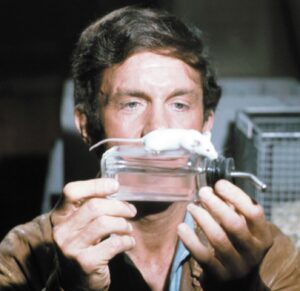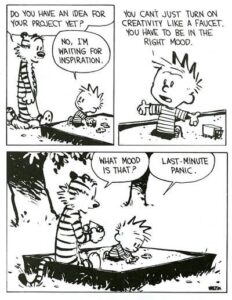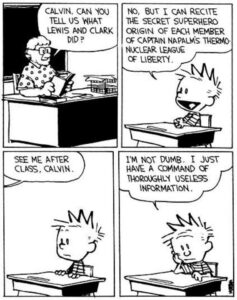If you’re just joining us, since April of this year I’ve been documenting my ADHD experience in the hopes that it will help anyone who’s struggling with similar issues. I began by talking about my symptoms and what I tried before admitting it might be ADHD and seeking treatment. Then I wrote an update about my mixed results with the first medication I was prescribed, followed by the more promising results from the second medication. That was in June, and it’s October now; so what’s happened over the last four months?
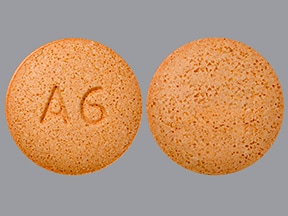 I’ve been continuing to take Adzenys XR-ODT since I was originally prescribed the medication. We’ve increased the dose from 3.1mg (which I’ve since discovered was actually lower than the recommended pediatric starting dose, which makes it all the more surprising that I actually had some good results while taking it) up to 9.4mg (still below the recommended adult starting dose). For comparison, Adzenys XR-ODT 9.4mg is comparable to Adderall XR 15mg (which is not currently available in most of the country). I’ve stuck with the 9.4mg dose for two months now.
I’ve been continuing to take Adzenys XR-ODT since I was originally prescribed the medication. We’ve increased the dose from 3.1mg (which I’ve since discovered was actually lower than the recommended pediatric starting dose, which makes it all the more surprising that I actually had some good results while taking it) up to 9.4mg (still below the recommended adult starting dose). For comparison, Adzenys XR-ODT 9.4mg is comparable to Adderall XR 15mg (which is not currently available in most of the country). I’ve stuck with the 9.4mg dose for two months now.
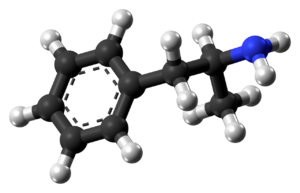 The modest improvements in attention, focus, and executive function that I noticed when beginning the medication have become significant, and the effect continues to be consistent over the course of the workday rather than concentrated immediately after I take a dose. I still don’t feel manic, and I still feel like myself. The concerns about blood pressure haven’t gotten worse, despite the dosage increases; and I’ve actually been able to make some improvements in that regard since being medicated since I’ve actually been able to exercise somewhat regularly without it feeling like an impossible task. My wife has noticed externally that the improvements in my home life have continued, as well. My alertness, focus, motivation, executive function, energy levels, mood, temporal perception, memory, and cognition (the factors by which I think about my attention levels) all seem to be greatly improved, though I do think there is room for more improvement.
The modest improvements in attention, focus, and executive function that I noticed when beginning the medication have become significant, and the effect continues to be consistent over the course of the workday rather than concentrated immediately after I take a dose. I still don’t feel manic, and I still feel like myself. The concerns about blood pressure haven’t gotten worse, despite the dosage increases; and I’ve actually been able to make some improvements in that regard since being medicated since I’ve actually been able to exercise somewhat regularly without it feeling like an impossible task. My wife has noticed externally that the improvements in my home life have continued, as well. My alertness, focus, motivation, executive function, energy levels, mood, temporal perception, memory, and cognition (the factors by which I think about my attention levels) all seem to be greatly improved, though I do think there is room for more improvement.
But probably the biggest thing that proves it’s working comes from when I haven’t taken it. There have been a few days when I’ve forgotten to take it (the early mornings are when my ADHD is the worst, since it’s been the longest since my previous dose), and on those days I notice a distinct regression in my mental capacity; most clearly in my focus and motivation, but affecting all the aspects I’ve been monitoring.
Even that, though, pales in comparison to the change that happened when my wife and I went on a mini-vacation and I forgot to take the medicine with me (early mornings, I’m tellin’ ya). Over the course of three short days, I felt myself regressing significantly; to the point where, on the last day, I could tell that my mental status was probably comparable to what it would’ve been on a bad day before medication. Do you remember Daniel Keyes’ short story Flowers for Algernon? I remember reading it (and frankly being haunted by it) in Mrs. Anderson’s sixth grade class. In the story, a man named Charlie recounts his experiences with an experimental treatment to increase his intellect and mental capacity, a procedure previously performed on a mouse named Algernon. It’s told in first person, and demonstrates his rapid transition over the course of days or weeks from a state of intellectual disability to a super-genius, and the associated increase in his confidence. But at a certain point, the mouse Algernon begins to decline in intelligence, and Charlie realizes that it will happen to him, too; for the remainder of the story, he relates his experience with the knowledge that he will lose his intellect as well, and his fear and dread as it all slips away.
That’s what it felt like to not take the medicine for a few days. I know that sounds dramatic (and, to be fair, it is), but there is a marked difference between medicated and not medicated; and I can tell more acutely when I’m not medicated.
Dramatics aside, as noted above, I do think there’s room for more improvement; I’m planning to ask for another dosage increase the next time I have the medication refilled. I’ve noticed that there’s a steep curve of improvement that tapers off after the first couple of weeks on a higher dose, and this time that curve seemed to last a bit longer before normalizing, so I think we may be close. Winter is coming, though; and I’ve had issues with seasonal affective disorder in the past, so we’ll see if I need to make adjustments for that.
I’ll continue to provide updated here; as always, thank you for your kind words of support, and I hope that people continue to be helped by these posts. Please let me know if there’s anything that you’re concerned or curious about; I’d love to share more, and I appreciate your presence with me on this journey.



